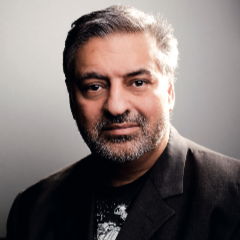When you look ahead are you able to say with confidence that your business, organization, or community is truly prepared for a radically different future of energy?
It’s the time of year when demand on the world’s energy systems peak. Summer in many parts of the world means that electrical grids are working overtime to power the cooling and ventilation systems that keep large cities safe from sweltering urban heat. And yet, in other less developed parts of the planet, temperatures will reach deadly levels from which there is no escape, and people will die. Our survival is totally dependent on our ability to continue to power the world we live in. But because energy is a limited resource, it’s not equally distributed.
Most views of the ‘almost probable certain future’ show this situation being addressed slowly over the next five decades – and way too late for many who will perish for lack of a reliable energy supply. But what if we could embrace a fundamental shift in thinking, reset our priorities and investment plans, and set ourselves on a very different path to the future? In The Future Reinvented – Reimagining Life, Society, and Business we look a wide range of alternative, unexpected and surprising future scenarios, across a number of societal domains and industries, and consider ways in which we might change the path to the future.
Drawing on perspectives from the book we have combined these with new outlooks, and with some fantasy thinking to explore four scenarios for the reinvented future of energy.
The scenarios are influence by the outputs from a workshop our team designed and facilitated at the Finland Futures Research Conference in Tampere, Finland in June 2018. This explored how global societies might be powered in the decades ahead of us.
Scenario 1: The power of the Sun
This future takes place between 2020 and 2050. This future rests on the progression of the idea of organic solar cells and advances in solar panel performance. There would be a focus on peer to peer energy distribution systems. Cutting out the grid could lead to a healthier, renewable, and optimized quality of life. It gives regular people something of value that they can trade or sell to meet their basic needs.
Imagine it is 2020. Politicians are trying to maintain the status quo. They’re resisting the changes being enabled by solar energy. By 2030, they recognise there are more energy producers than consumers. Not only that, but there is enough clean energy to last a lifetime. This means sustainability becomes the norm across the planet.


























